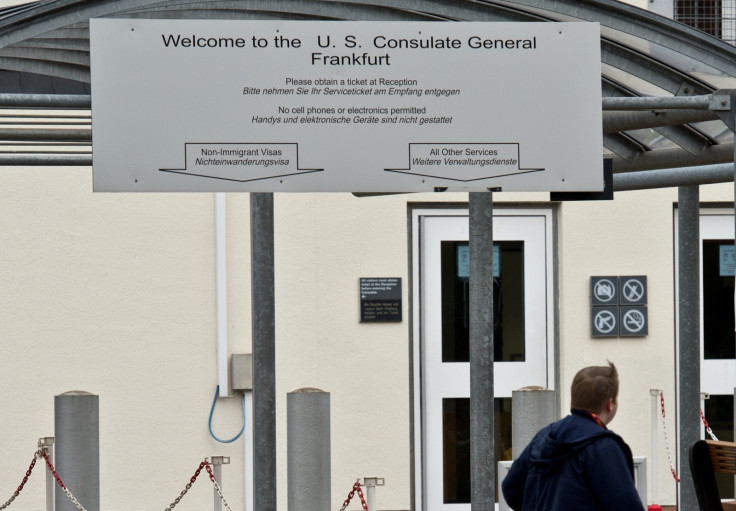WikiLeaks' revelation US Frankfurt consulate used as CIA base leads to German inquiry
Germany's chief federal prosecutor probing possible 'criminal acts' after Vault 7 leak.
In the wake of WikiLeaks' claim that the US Central Intelligence Agency (CIA) routinely uses the US consulate in Frankfurt as a "covert hacking base", German officials have confirmed a probe has been launched to investigate the accuracy of the allegation.
The chief federal prosecutor's office said this week (8 March) it will carefully examine the alleged CIA documents published by WikiLeaks to check for "indications of wrongdoing," Reuters reported. The leak was largely focused on a number of malware-based hacking tools.
"We're looking at it very carefully," a spokesperson said. "We will initiate an investigation if we see evidence of concrete criminal acts or specific perpetrators." Additionally, the German foreign ministry said Berlin is in "close touch with Washington" about security issues.
In an analysis published on 7 March, WikiLeaks highlighted one alleged CIA document that gave advice to cybersecurity agents travelling to Germany covertly. It offered a step-by-step guide on how to stay under the radar, usually by posing as a US government staffer.
WikiLeaks wrote: "[The agency] uses the US consulate in Frankfurt as a covert base for its hackers covering Europe, the Middle East and Africa. CIA hackers operating out of the Frankfurt consulate are given diplomatic ('black') passports and State Department cover."
It added: "Once in Frankfurt CIA hackers can travel without further border checks to the 25 European countries that are part of the Shengen [sic] open border area — including France, Italy and Switzerland."
The leaked document gives advice on flights, what agents should do when they arrive on site and tips on how to stay undercover. "Flying Lufthansa: Booze is free so enjoy (within reason)! Flying United: My condolences," one light-hearted sentence read.

Others were more serious. "Be aware that your co-workers here are all under cover," it said.
"While cover seems like an administrative thing back home, it is vital in the field," the document added. "Help protect everyone's cover. Avoid using terms outside of [work] that could betray that people are not 'State Department' employees."
The CIA has declined to comment on the legitimacy of the leaked files, which WikiLeaks claims span from 2013 to 2016. However, in a statement on its website, the agency addresses some key points.
It said: "It is CIA's job to be innovative, cutting-edge, and the first line of defence in protecting this country from enemies abroad. America deserves nothing less.
"The American public should be deeply troubled by any Wikileaks disclosure designed to damage the Intelligence Community's ability to protect America against terrorists and other adversaries. Such disclosures not only jeopardise US personnel and operations, but also equip our adversaries with tools and information to do us harm."
It's not the first time US intelligence has clashed with Germany. Back in 2013, Spiegel Online, reporting on NSA documents provided by Edward Snowden, revealed a unit called the "Special Collection Service" (SCS) was covertly operating in Berlin and Frankfurt.
At the same time as the German probe, US law enforcement is reportedly also planning to interview hundreds of CIA staffers in an attempt to locate the source of the leak. According to the New York Times, the FBI will spearhead the investigation.
© Copyright IBTimes 2024. All rights reserved.






